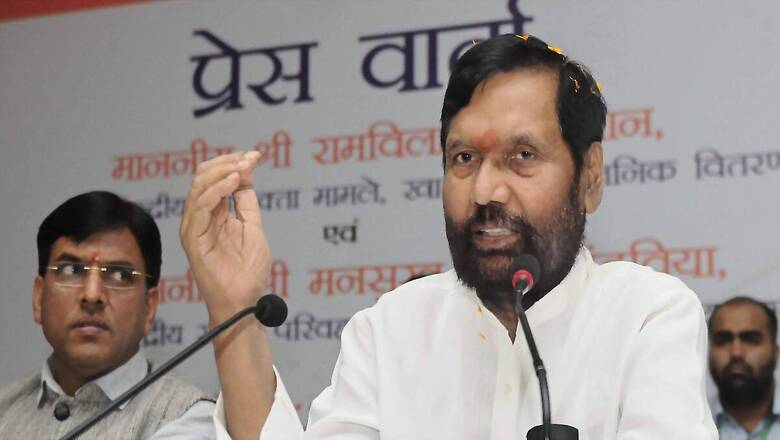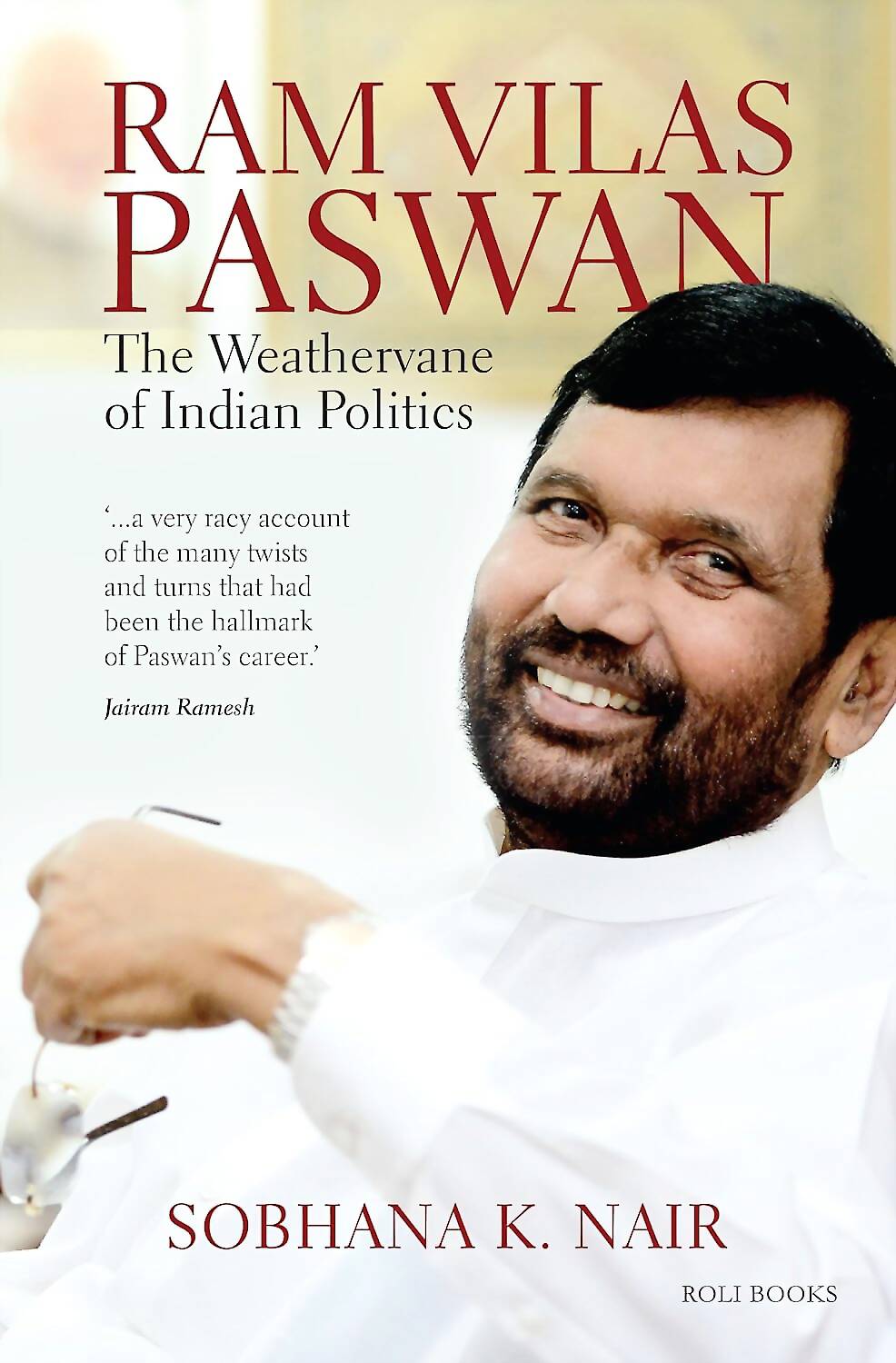
views
This week, I was a speaker at the launch of Sobhana Nair’s biography: Ram Vilas Paswan: The Weathervane of Indian Politics. I had the privilege of knowing Paswan personally and was always impressed with his humility, gregariousness, humour and accessibility. The book was launched by my very good friend, Harivansh, Deputy Chairman of the Rajya Sabha. The other panellist, also a dear friend, was Professor Manoj Jha, now an MP in the Rajya Sabha. The moderator was the ever-smiling and competent, Rashid Kidwai. Sobhana, of course, was on the panel. Chirag Paswan and Sushil Kumar Modi, who were also listed as speakers, were conspicuously—and perhaps deliberately—absent.
Sobhana has had a distinguished career in journalism and is currently the Deputy Editor of The Hindu. She has written a highly readable book on Paswan, full of anecdotes and material from interviews with him, and his contemporaries. Biographies of political leaders tend to become—as I said in my remarks—either a panegyric or an over-researched analysis, where the profusion of footnotes overwhelms the essential story and personality of the subject. Fortunately, Sobhana has avoided both of these pitfalls.

Paswan’s role in Indian politics for over five decades as a nine-term Lok Sabha MP and a two-term MP in the Rajya Sabha, as well as a stint in the Bihar Assembly, and a member of the Central cabinet with six successive prime ministers of different parties, for a continuous period of some thirty years, compels a narration of his life. In fact, no complete history of modern Indian politics can be complete without a discussion of the thinking, background, ideology and political agility of Paswan.
Sobhana has chosen a controversial sub-title for her biography, dubbing Paswan as the ‘weathervane of Indian politics’. To a great extent, she is right, although I did comment laughingly that his record as a weathervane has long been eclipsed by another politician in Bihar, who has for the nth time recently changed sides again!
Paswan’s ‘weathervane’ description originated from a colourful phrase by the inimitable Lalu Prasad Yadav, labelling him as a ‘mausam vaigyanik’. What Lalu implied was that Paswan was able to predict the political future, and had the uncanny ability to always choose the winning side. In recent times, this was more than demonstrated when he left the UPA to join the BJP in 1999 during Atal Bihari Vajpayee’s tenure as PM, then left the BJP to join the Congress when the UPA returned to power in 2004, and finally left the UPA in 2014 to climb on to the winning juggernaut of Narendra Modi of the BJP.
The accuracy of this political assessment must have few parallels, not only in the annals of Indian democracy, but in democracies worldwide, especially since Paswan made these timely switches not after the political party he shifted to had won, but before.
In this success story, ideology was never a constraint, even though ideology, stemming from his personal background, was the dominant factor in his decision to join politics. Paswan, a Dalit, was born in poverty, in a remote village of Bihar, surrounded by six rivers, to which even access for half the year was difficult. To go to the local school, he had to swim across two rivers. He was in the ninth class when he first got a pair of shoes. Even so, he persevered with his education, completing his graduation, and acquiring a Law degree.
When Ram Vilas took the plunge into the uncertain waters of politics, he was already successful, having been selected to become a Deputy Superintendent of Police, a post which, given his background, was a momentous achievement. That he took the plunge nevertheless is proof of his ideological conviction that the poorest and the weakest—especially the Dalits—needed a voice in Indian politics.
His first election to the Lok Sabha in 1969, as a candidate from the Samyukta Socialist Party, was fought with almost no resources. But remarkably, he unseated an established Congress politician, and won by a margin which has made it to the Guinness Book of World Records.
But it is also true that Paswan sacrificed his long-term goal of building a pan-Dalit movement in the form of Bahujan politics at the altar of the immediate enticements of political power. His ideological convictions remained till the end, but they were marginalised as he increasingly got co-opted into the vortex of the power-hungry Indian political system. The architect of such a Bahujan mission was Kanshi Ram. His goal of alleviating the plight of Dalits and the extremely backward classes was not confined to UP alone. He was the ideologue of Bahujan empowerment, and, purely in numerical terms, given the size of the depressed classes across India, it was a viable one. But he was betrayed in this long-term goal by his own chosen legatee, Mayawati, who too, like Paswan, sought immediate returns in political power.
The other aspect which Paswan’s political career illustrates is the repeated failure of the Socialist movement. In 1967, after the decline of the Congress hegemony, and the emergence of leaders like Ram Manohar Lohia as iconic socialist leaders, this movement showed promise. Paswan, Mulayam Singh Yadav, Lalu Prasad, Nitish Kumar, George Fernandes, Karpoori Thakur and Charan Singh, among others, were its most prominent faces. However, the socialist leaders had a congenital failing of clashing egos, internal divisions, and ideological inconsistency. Today, the Socialist movement has become an enfeebled and fractured accessory of mainstream politics.
Paswan, for all his conventional political success, cannot escape this betrayal. After his untimely death, he has left behind a divided Lok Janshakti Party, where an internecine war is on between his son, Chirag, and younger brother, Paras.
The author is a former diplomat, an author and a politician. Views expressed in the above piece are personal and solely that of the author. They do not necessarily reflect News18’s views.



















Comments
0 comment